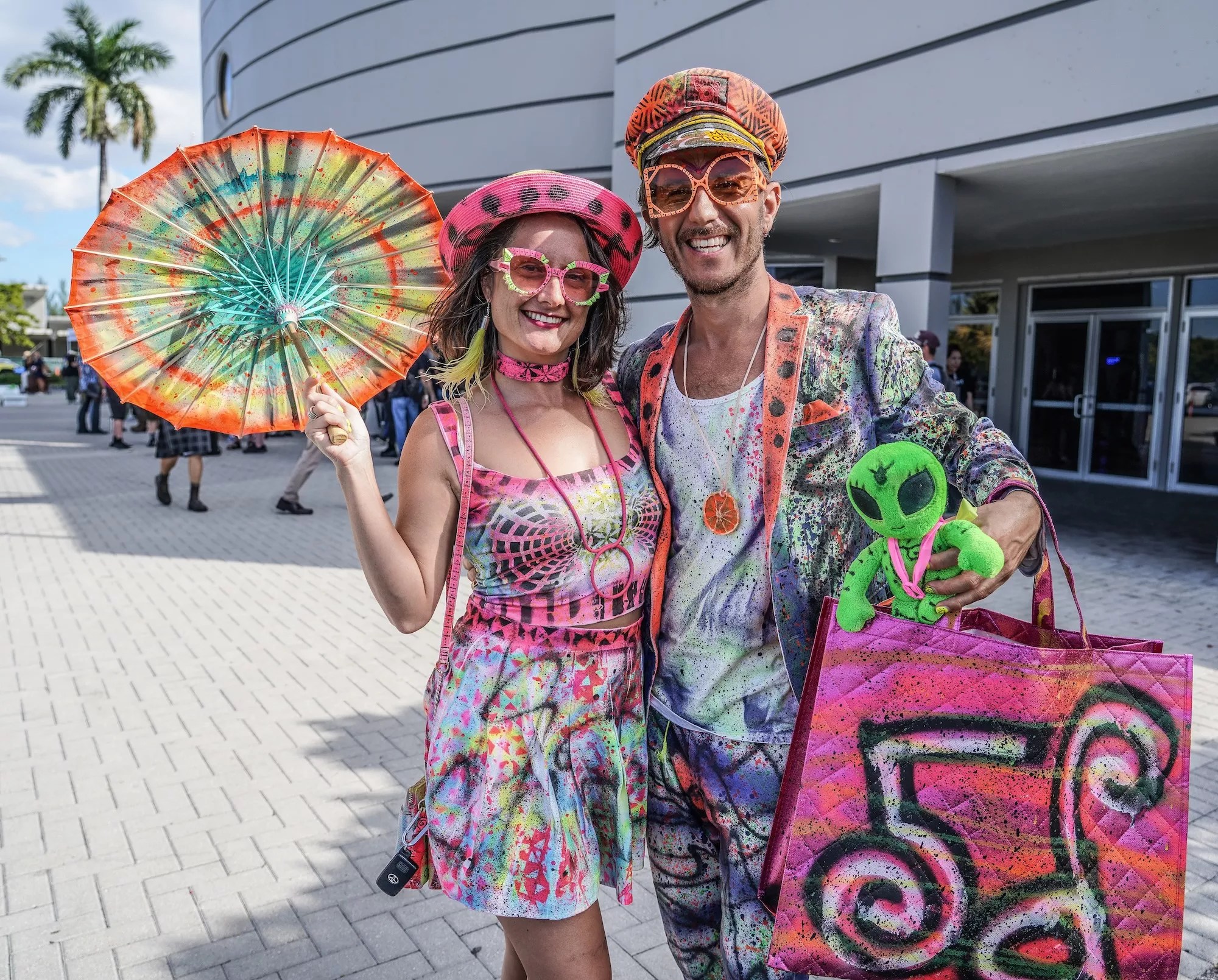
Cannadelic photo

Audio By Carbonatix
Miami’s about to get a whole lot higher, and we’re not talking about a new rooftop bar or top-of-the-line luxury skyscraper.
Cannadelic Miami 2025, a weed and psychedelics expo, is coming to the Miami Airport Convention Center on Friday, May 23, and Saturday, May 24. But this summit isn’t just another glossy convention with overpriced tinctures and mushroom merch. It’s a full-on collision of science, culture, policy, and counterculture – an unfiltered look at the substances changing how we treat trauma, process consciousness, and challenge the boundaries of medicine itself.
Cannadelic, deemed the “world’s largest cannabis and psychedelics conference,” is known for bringing together experts – psychedelic scientists, cannabis entrepreneurs, and spiritual seekers – who study how psychoactive substances and cannabis intersect. For the merely curious, the convention will also feature two full days of immersive workshops and keynote speakers. Among this year’s guests are former Miami Dolphin and cannabis advocate Ricky Williams and Dr. Angela Fisher of St. Pete’s groundbreaking holistic mental health clinic Bionic Bloom. The practitioner will participate in an onstage Bufo immersion, during which she’ll administer psychedelic toad venom to a patient in front of an audience.
One of the conference speakers is Dr. Joseph Lichter, dubbed the “psychedelic professor” of Florida International University. He says he never imagined his pursuit of the sciences would lead him down this career path.
“I didn’t have real training in psychedelics when I was starting out,” he admits to New Times. “I’m a chemist by background. But around the very start of the pandemic in 2020, I went deep – events in Amsterdam, webinars during lockdown, just soaking it all in. And I realized we need more than just anecdotes [about psychedelics]. We need science, objectivity, and a willingness to confront our own biases.”
Since launching a psychedelic studies course at FIU’s Honor College, Dr. Lichter has drawn students from across disciplines looking to learn more about new research around these sometimes taboo substances. He says recent destigmatization has piqued students’ interests. New research and documentaries like Netflix’s How to Change Your Mind support claims that these substances could help with the treatment or management of mental illnesses, including through the practice of microdosing.
“People come in thinking psychedelics are either miracle cures or dangerous party drugs,” he says. “The truth is somewhere in between – and way more interesting.”
Cannadelic itself is a microcosm of that complexity. While it emerged from Florida’s cannabis movement (which contends with significant pushback from the state), the summit has evolved into one of the country’s most important gatherings for the psychedelic and plant medicine community.
This year’s edition, presented by the aforementioned Bionic Bloom – the first legal plant medicine therapy center in the U.S. – promises more than 100 curated exhibitors and panels on topics ranging from trauma recovery to neurodivergence to policy activism and Indigenous perspectives. Attendees can even take advantage of workshops and wellness activities, including sound healing, breathwork, somatic work, yoga, and more.
The expo also looks to explore the intersections between cannabis and psychedelics.
“People open to cannabis generally tend to be open to psychedelics as well,” Dr. Lichter explains. “They’ve both been criminalized since the 1970s, and both challenge Western medicine’s conventional thinking. They’re also both psychoactive – and obviously, both big at Grateful Dead shows.”
Beyond their cultural parallels, these substances have also faced their fair share of legalization issues, especially in Florida. But, as Dr. Lichter points out, there is a growing domino effect of states becoming more open to the value of psychoactive drugs. In 2020, Oregon became the first state to legalize psilocybin, a naturally occurring psychedelic compound found in certain mushrooms. Colorado followed in 2023, and New Mexico joined the exclusive club just this month. And while Florida failed to meet the 60 percent supermajority threshold required to legalize recreational marijuana last year, an overwhelming majority (55 percent) voted in favor of legalization.
“It’s frustrating,” Dr. Lichter says of the recent electoral defeat. “Especially when you see the economic potential, the public health benefits, and the sheer number of people who already use these substances responsibly. The ads against legalization were ridiculous. One claimed we’d be handing out weed in schools. Another said only big corporations would profit. It’s fear-mongering, plain and simple.”
Still, he remains optimistic. “The fact that more than half the state said ‘yes’ to weed shows how far we’ve come. Ten years ago, that would’ve been unthinkable.”
Cannadelic Miami 2025. 9 a.m. Friday, May 23, and Saturday, May 24, at the Miami Airport Convention Center, 711 NW 72nd Ave., Miami; cannadelic.miami. Tickets cost $10 to $249.